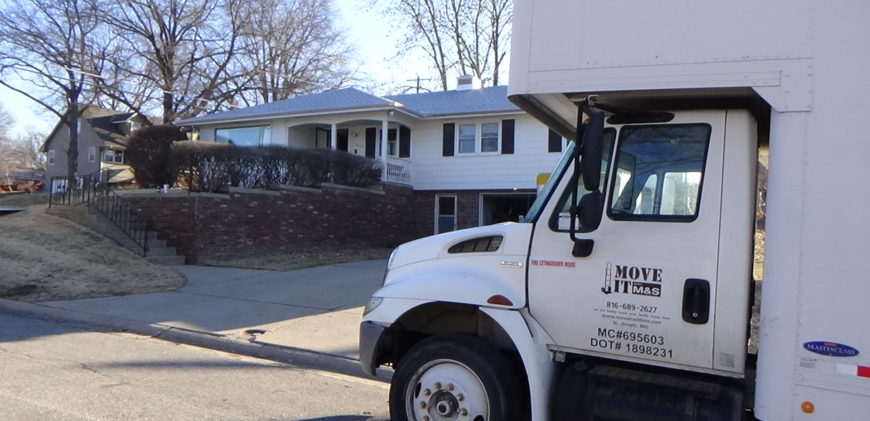
This month has been all about hiring reputable movers. And as the busy season is upon us, we want to continue to educate others about hiring professional, trustworthy companies. Last week, we discussed moving estimates, cost considerations, and tips on how to save money during the moving process. This week we’re taking a look at the ins and outs of deposits, extra fees, and contracts.
These tips could mean the difference between falling for a scam and hiring an honest moving company. Moving.com has a great blog post listing ten different types of moving scams.
Not every moving company charges a deposit, but many do. For you, the paying customer, we understand why putting down money upfront can be a little scary. What if the service is bad? What if the so-called moving company takes your money and runs? These might be a few questions that pop into your head when you hear the word deposit. However, we can assure you that there is a good reason moving companies ask for one: to secure the service and lock in your moving date.

When customers cancel a move, it costs the moving company both time and money. Throughout the year, but especially during the busy summer months, it’s vital for us ensure calendars are as full and as accurate as possible, so that our employees get paid for the work they were promised. Slots fill up fast, so we need to ensure that you receive the date and time you wanted. If a customer were to cancel, the deposit makes up for some of the revenue that we would have otherwise lost.
Basically, a deposit or down payment means commitment. Commitment from the customer that they are going to use our services, and commitment from the company that we are going to show up and get the job done.
Another thing about working with a company that requires a deposit: it’s an indication that they are thriving, successful, and trustworthy. When you’re looking into hiring reputable movers, remember: a deposit is not a bad thing.
Every company has their own policy when requesting deposits. It usually depends on the size of the move, the amount of the estimate, the season, and whether the move is local or long-distance. That being said, a reasonable deposit can range anywhere from $100 to $500 for local moves. The amount grows with long-distance moves.
A good rule of thumb when paying a deposit: the amount should be no more than 25% of the total estimate price. If it’s any larger than that, you might be dealing with a scam. For more information on how to recognize a moving scam, and what action you should take if you are tricked into one, read our blog post on the subject. In addition, the deposit should go towards the price of the move. It should not be an extra fee. That could also be a sign of a rip-off.

When it comes to adding extra fees, every company is different. But just because one company might charge for some services, while another doesn’t, don’t be alarmed. This is just how they choose to run their business.
The main idea that we want to get across to consumers is this: make sure extra fees are in writing, and are included in your estimate. And if you believe something is fishy, don’t be afraid to ask questions! If they neglect to answer, or try to dodge your questions, it’s time to find a new moving company. As long as nothing changes, your price shouldn’t change either. Be leery if extra fees pop up and the company didn’t talk to you about them first.

However, extra fees might be applied last minute if situations change last minute. For example, if you disclose that a certain item, like a piano, will not be moved prior to moving day, and when moving day arrives and you’ve changed your mind, there will be an extra fee applied to your bill. Another example is that if the elevator to your apartment breaks down, and the movers now have to travel by the stairs, an extra fee will be charged then as well.
There are many considerations to take into account when providing a customer with a moving estimate. For more information on the types of fees that could affect the price of your move, visit our blog post about estimates, pricing, and savings.
This is the most important step you should take when hiring reputable movers. Contracts and/or terms of service are a necessity when dealing with a service provider. They should want to cover their backsides as well. When you’re considering a moving company, and they haven’t asked you to sign anything, or given you anything in writing, this is a huge red flag. Plus, the contracts and agreements that you sign cover your backside as well if something were to go wrong. It’s a win-win.
We also want to take a second to implore you to never sign blank documents. The company can add anything they want to a document and simply copy your signature over to it, adding extra charges or anything else you didn’t agree to.

The busy season is upon us, and moving companies are getting booked up more and more every day. If you’re debating on using a moving company in the near future, we highly encourage it. Hiring reputable movers is easy as long as you educate yourself about your proposed moving company. Ask lots of questions and make sure you’re ready for any situation, to ensure your moving day will go as smoothly as possible.
For any questions, please don’t hesitate to contact us.
Keep an eye out for our next blog post about how to check the credentials of a moving company. It’s important to do your homework!